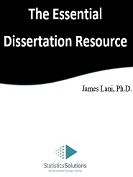Humanities

Business

Education

Social Sciences

Physical Science & Math

Life and Environmental

Library: Best sellers
Humanities

Business

Education

Social Sciences

Physical Science & Math

Life and Environmental

Lack of effective leadership strategies contributes to a reduction in employee engagement and productivity. Managers are concerned about the lack of effective leadership strategies because it negatively affects employee engagement and productivity, reducing organizational growth. Grounded in Bass's transformational leadership theory, the purpose of this qualitative single case study was to explore effective leadership strategies used to enhance employee engagement and increase productivity. Five managers from an electric cooperative in Northwest Florida who implemented effective leadership str...
Workplace bullying, the repeated and regular act of harassing, offending, socially excluding someone, or negatively affecting someone’s work over time has been recognized as a serious threat to the health and well-being of employees. This study sought to explore resilience as a coping strategy to help improve the physical and mental health effects of professional women who have or are experiencing workplace bullying. The central research question was, how does perceived resilience, when used as a coping strategy, help with the physical and mental health stressors while helping to improve the o...
This dissertation concerns the structures and individual agency of Filipina brides who met their American husbands through Internet or pen pal advertisements. Popular media, legal scholars, and some feminists have largely described the phenomenon in terms of its oppressiveness toward the women involved, thus dismissing any agency on the part of the women. Similarly, much of the scholarship has located the American Internet grooms as ogres who are out to exploit these women for domestic and sexual services. If prominent researchers of this phenomenon are correct in their assessments that Filipi...
Download complete 61 page Essential Dissertation Resource guide (click Download Complete PDF button in left sidebar), or visit the Statistics Solutions website shown below for more details. In The Essential Dissertation Resource, Statistics Solutions has culled templates and examples from more than 20 years of experience working with doctoral students from around the country, using both qualitative and quantitative methods, from online and brick-and-mortar schools, and in diverse fields, such as business, psychology, nursing, education, and many others. The Essentials book will help gradu...
Understanding risk is important. Prior to 2008, as the yields on safe assets hit rock bottom, investors began to focus on an alphabet soup of more complex instruments. These complex securities were rated AAA and appeared as safe as U.S. Treasuries, but with much higher yields. The 2008 financial crisis revealed, however, that higher yields on these instruments came with higher risk, albeit too late for these investors. This study seeks to understand the risk--return tradeoff, managerial skill, and factor exposures on the risk-return tradeoff in two financial instruments that have been limitedl...
The problematic field of investigation for this study was for the care of bereaved human beings in the context of significant cultural shifts now shaping the twenty-first century. Deritualization was identified as a significant interdisciplinary concern that contributes to potential distress in processes of grieving. The objective of the research was the development of a practical theology of compassionate caregiving for the bereaved with deference to the problem of deritualization. The theoretical framework was guided by the Oxford Interdisciplinary Research model and the Loyola Institute of ...
All around the world, information technology is evolving at an alarming rate, and it could be challenging keeping up with the growing changes that we are witnessing with it. This paper explored the relationship between emotional intelligence and leadership styles among information technology professionals. Does emotional intelligence predict leadership style and do leadership styles predict emotional intelligence components? A total of 185 participants were involved in this study. The leadership styles, which are comprised of transformational, transactional, and passive-avoidant, were measured...
The Kurdish question started to be discussed especially after the establishment of Republic of Turkey in year 1923. This problem has many different aspects, as well as sociological and political problems. PKK, the terrorist organization, constitutes another dimension of this problem. The peace process for the sustainable peace regarding with the Kurdish question and PKK took place in year 2009. This process aimed to end the PKK terrorism and to solve the Kurdish question from its roots through effective and permanent methods. However, the solution process begun in year 2009 by the AKP gover...
Most feminists agree that successful prostitution reform requires that prostitutes be respected by their clients, peers, and the community. Although respect is not the only criterion necessary for acceptable reform, many feminists believe that the absence of stigma would be a sufficiently fundamental improvement to merit the reconsideration of policies that severely restrict prostitution. The aim of this study is to show that certain online prostitution venues contribute to acceptable prostitution reform by fostering trust and respect between the participants. My hypothesis is that when commer...
Debris disks are optically thin circumstellar disks around mainsequence stars, comprised of micron-sized grains. The dust is generated from destructive collisions of planetesimals, induced from gravitational perturbations by large planets. Debris disks can as signposts for planetary systems, through which, a universal picture can be obtained that encompasses the evolution and architecture of the Solar System’s own dust disk and planetary system. The dust in these disks can be detected by their thermal infrared flux, measured as an excess above the photospheric emission. Dust at different circu...









